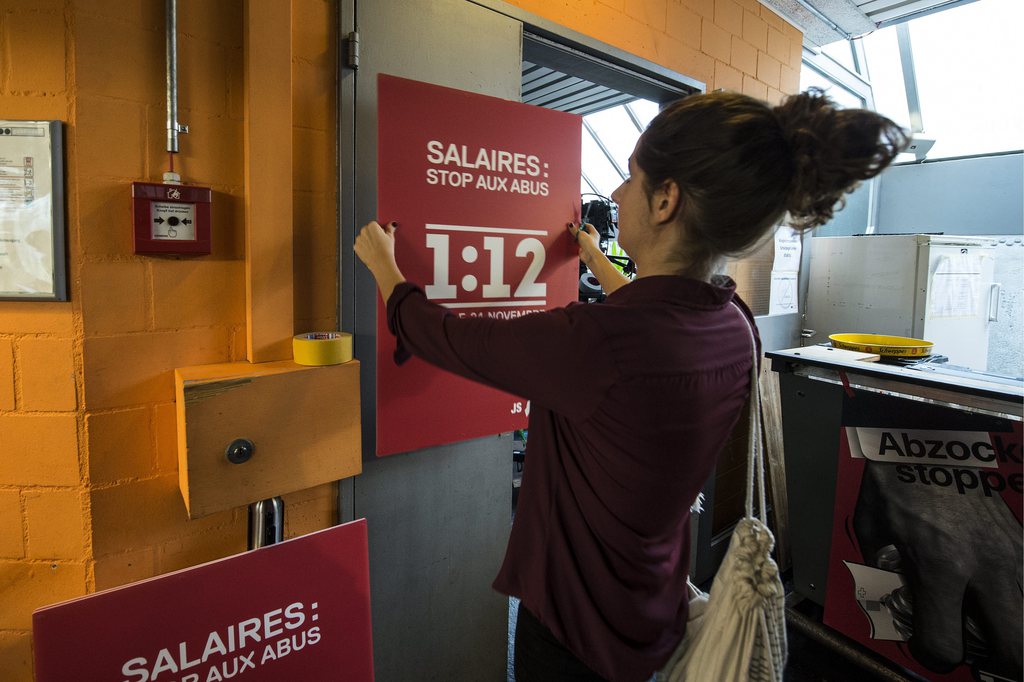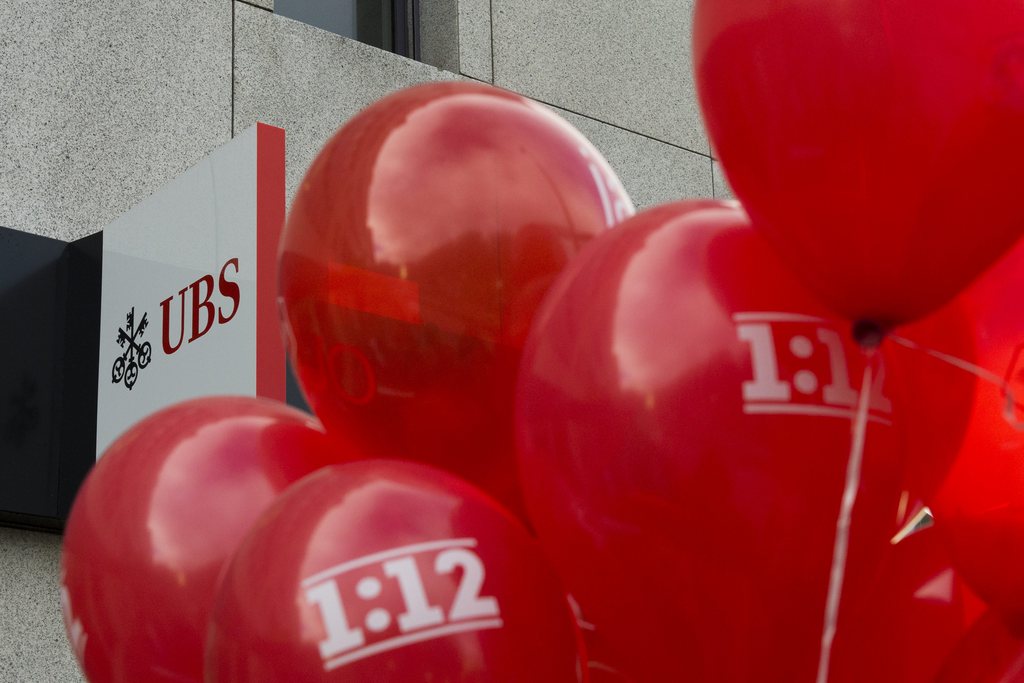Salary limit judged too extreme by voters

Swiss voters have shown their pragmatism in rejecting a proposal to cap the salaries of top executives at 12 times that of a company’s lowest wage, according to newspapers on Monday.
Although the public continues to shake a fist at massive executive pay, the idea of a fixed upper wage limit was seen as too extreme by many voters – 65.3% of whom on Sunday said no to the initiative by the youth wing of the centre-left Social Democratic Party.
For Der Bund in Bern, the fear of economic damage was stronger than the desire for justice. “Anger over wage orgies in boardrooms has not dissipated. Only if the majority of voters feel that the business world is not abusing its freedom will they be prepared to reject leftwing regulation and rightwing isolationism.”
The Neue Luzerner Zeitung believed that unlike the so-called fat cat initiative – backed by 68% of voters in March and which gives shareholders a veto over top manager payments – “the business world this time managed to get its arguments across”.
“Despite its defeat, the leftwing will continue its march against the liberal economic system,” it continued. “The parties on the other side can merely breathe a sigh of relief for the time being.”

More
No upper limit put on executive salaries
Popular displeasure
The Berner Zeitung said that although popular displeasure remained high over occasionally “astronomical” salaries – at one point Credit Suisse Chief Executive Brady Dougan’s total pay was 1,182 times that of the bank’s lowest paid employee, according to union federation TravailSuisse – getting Swiss voters to pass a fixed wage cap was almost impossible.
“Nevertheless, companies have been warned to do away with telephone number salaries because understanding for such behaviour hasn’t grown following the vote.”
As the Tages-Anzeiger pointed out, “every third voter in this relatively liberal country wanted a wage cap to be fixed by the state. The initiative’s opponents can’t simply blow off demands for a fairer distribution of wages”.
The Swiss voting system is not totally immune to populism, according to the Neue Zürcher Zeitung, but it generally stays pragmatic and forgoes any experiments. Sunday’s result “has shown up the limit of the initiative’s organisers’ policy and campaigning”, it concluded.
PLACEHOLDER‘Own goal’
In the French-speaking part of Switzerland, 24 Heures in Lausanne and La Tribune de Genève both reckoned the Social Democrats had scored an own goal, with Sunday’s result leaving the left and the unions in a bad position.
“The comfortable victory for the right gives them a huge advantage for the much more important campaign of a minimum wage: that of credibility,” they said.
While La Liberté in Fribourg agreed that the size of the victory “would give a boost to opponents of the union initiative”, Le Quotidien Jurassien wasn’t sure that Sunday’s result necessarily meant a rejection of a minimum wage.
It pointed out that Germany was going to introduce a minimum wage and this would have an effect on Switzerland.
In Geneva, Le Temps viewed the rejection from another perspective. Admitting that the “severity of the economic competition alarms large swathes of the population”, it pointed out that “closing the borders seems to many people a simple solution, as efficient as the salary cap initiative”.
As a result, “another battle begins: combatting the Swiss People’s Party’s initiative on mass immigration”. Voters will have their say on that on February 9.
Foreign interest
The vote rejecting the restriction on bosses‘ salaries attracted comment from the foreign press as well.
“Full marks to the democratic wisdom of the Swiss for rejecting the egalitarian mirage offered by the 12:1 campaigners,” said the Wall Street Journal, which commented that although few disagree that in a perfect world pay should correspond with performance and productivity, “in the real world that is far more likely to happen when compensation is set by employers and employees rather than by political decree”.
“The Swiss turn down the class struggle”, commented the German daily Die Welt, which praised the Swiss for their sense of responsibility.
The conservative Austrian newspaper Die Presse said the fact that the issue came to the vote at all shows that Switzerland is the only democracy in Europe deserving of the name, “for the result of the poll shows that the Swiss don’t only give their vote to issues that are to do directly with their own interests”.
In Italy the economic paper Il Sole 24 Ore welcomed the outcome of the vote as a “sign of moderation”, but added that it would be a mistake to think the Swiss were not indignant at the high salaries that continue to be paid despite the financial crisis.
“It’s just that these pragmatic voters do not want to go too far the other way by fixing a ceiling which would be an obstacle to the recruitment of managers and could be counter-productive for the economy.”

In compliance with the JTI standards
More: SWI swissinfo.ch certified by the Journalism Trust Initiative

You can find an overview of ongoing debates with our journalists here. Please join us!
If you want to start a conversation about a topic raised in this article or want to report factual errors, email us at english@swissinfo.ch.